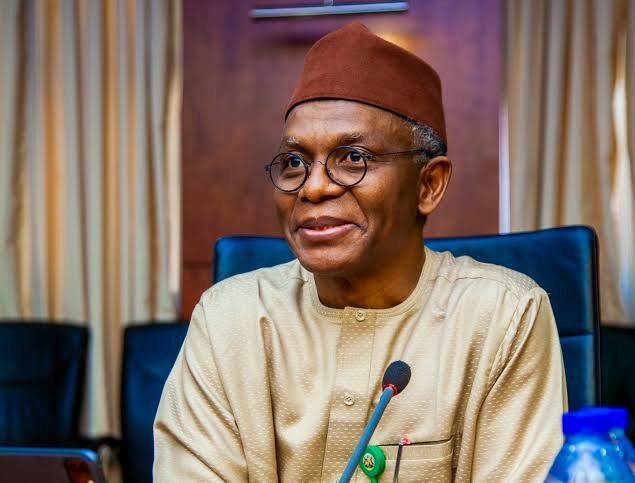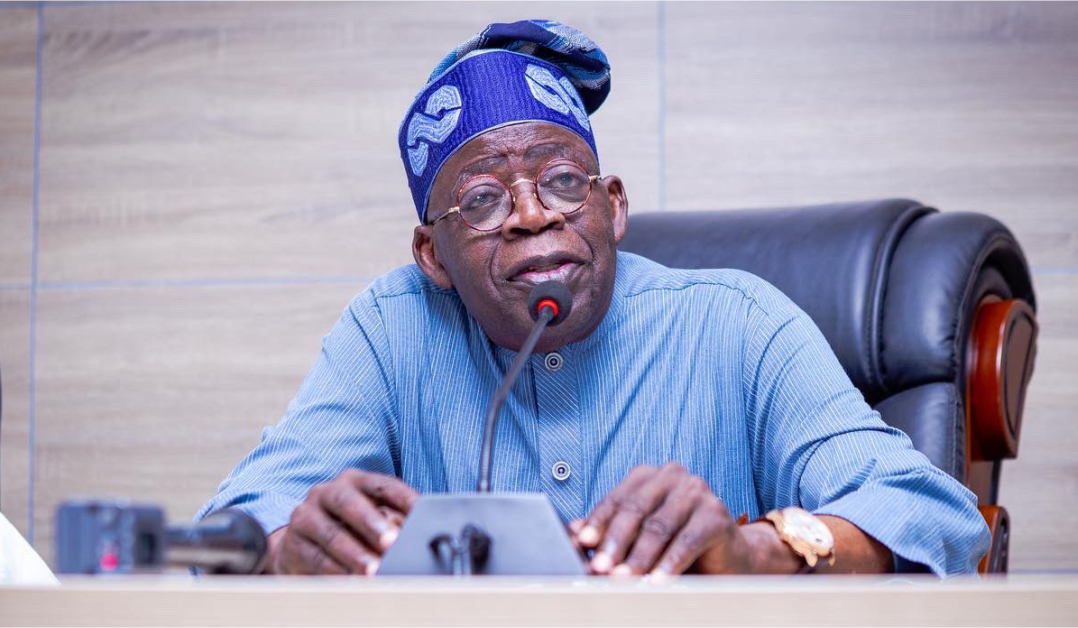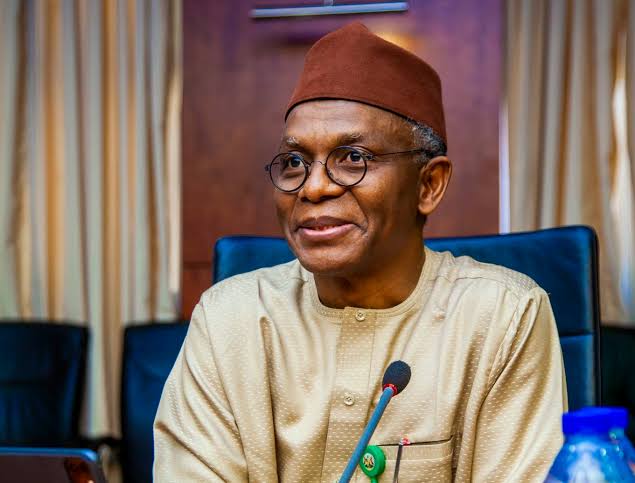The National Assembly, on Thursday, endorsed the state of emergency imposed on Rivers State by President Bola Tinubu on Tuesday.
The resolution was taken at separate plenary sessions of the two chambers where they deliberated on the suspension of Governor Siminalayi Fubara, his deputy, Prof Ngozi Odu and the state Assembly members.
The National Assembly backed Tinubu’s proclamation amidst calls from the opposition leaders to reject it.
Fubara, on Thursday, however, found his voice and debunked allegations by the Federal Government that he teleguided attacks on oil installations by suspected militant groups in the state.

Also, the governor said claims that he did nothing to rebuild the bombed state House of Assembly after he ordered the demolition of the facility was untrue.
Fubara said he acted on expert advice before demolishing the Assembly complex, which was said to have integrity issues.
In a statement issued in Port Harcourt by his Chief Press Secretary, Nelson Chukwudi, the suspended governor said it was important to put the records straight.
Recall that President Bola Tinubu in his speech while declaring a state of emergency in Rivers berated Fubara for doing nothing to prevent the attack on oil pipelines.
Tinubu also described Fubara as a tyrant, echoing the Supreme Court, while alluding to the demolition of the state House of Assembly complex, thereby, denying lawmakers a place to hold plenary.
But the suspended governor insisted that the allegations were untrue, saying the attacks were ignited by the comments of the Minister of the Federal Capital Territory, Nyesom Wike who during his media chat allegedly disparaged the Ijaw nation.
Fubara said Wike was adamant even when Ijaw leaders and groups demanded his apologies.
Fubara’s statement read: “Our attention has been drawn to a number of allegations claiming that Governor of Rivers State, His Excellency, Sir Siminalayi Fubara, did nothing to dissuade criminal groups and militants from making good their threats to attack oil installations in the state.
“There was also another claim that after demolishing the hallowed chamber of the state House of Assembly on Moscow Road in Port Harcourt, the governor did nothing to rebuild the facility.
“Ordinarily, we would have ignored the statements as mere results of lack of adequate information to the Presidency by those tasked with the responsibility of providing same to guide decision-making, but it has become imperative to set the records straight and correct the erroneous impression such narratives are creating in the minds of the Nigerian people.
“First, it is important to clarify that Governor Fubara has nothing to do with the threats by militants and also did not, in any way ‘telegraph’ the reported attacks on any oil facility in the state.
“It is on record that the reaction of stakeholders in the Niger Delta, especially elders, chiefs, women, Ijaw National Congress, its youth wing, IYC, as well as militants, among others, was triggered by remarks by the Minister of the Federal Capital Territory, Chief Nyesom Wike, in a live media chat, during which he dismissed Ijaws as a minority of the minorities and powerless in the Nigerian polity, saying that Ijaws are not the only ones that are militants and can blow up pipelines; that Ogonis, Ikwerres, and others are also militants and can as well blow up pipelines.
“Most of the Ijaw groups and leaders even demanded an apology from the FCT Minister, which he rebuffed.”
The governor continued, “Available public records show that Governor Fubara, on several occasions and at every forum, including all the project commissioning events as well as the handover of the AW139 Helicopter to the Nigerian Air Force, between March 3 and 13, 2025, made it clear that his administration was committed to the peace, security, and safety of oil facilities in the state.
“He often recalled his pivotal role as a member of the Presidential Committee on the Protection of Oil Installations in the region, and repeatedly emphasised the need to protect oil pipelines and other facilities in the state, urging his supporters and the people of the state to avoid acts capable of destabilising the state or sabotaging the nation’s economy.
“Since inception as the Chief Executive of Rivers State, Governor Fubara has prioritised investment in upscaling the welfare and operational equipment of all personnel and arms of the Armed Forces and security agencies in the state by building livable office and residential accommodation for officers and men and donating vehicles, gunboats, helicopters, and other critical needs of the formations to enhance efficiency and effectiveness in the performance of their duties.
“His commitment to total peace and good governance in the state has contributed significantly to increased oil production and revenues for the country since May 29, 2023, as the continuous rise in the accruable revenue from the State into the Federation Account has shown over the months.”
On the claim that Fubara acted with impunity to demolish the state House of Assembly complex and did nothing to rebuild it 14 months after, the statement said, “It is on record that Governor Fubara acted based on professional advice and guidance.”
He added, “Let it be clarified that the former governor and now FCT Minister repeatedly criticised the dilapidated and leaking Assembly Complex, and during the commissioning of the Assembly Quarters in August 2022, challenged the lawmakers to take responsibility for the poor state of the edifice, rejecting requests to rebuild it to ensure a conducive legislative environment for the lawmakers.
“It must be noted that immediately after the incident of October 29, 2023, and experts’ reports, the government decided to heed the age-old demands of the lawmakers to rebuild the facility and promptly demolished the dilapidated structure to give way for a state-of-the-art Assembly complex, which is now nearly 80 per cent completed.
“It would be recalled that in the wake of the most peaceful and violence-free local government election in the state on the 5th of October, 2024, the supporters of the FCT Minister violently attacked and razed facilities in some local government council secretariats without any reprisals from Governor Fubara’s supporters.
“It is also pertinent to draw the attention of security agencies to the fact that LGAs, where those attacks were unleashed, are the same places that have repeatedly witnessed violence perpetrated by detractors of the Governor Fubara-led administration.
“This is why it is important for security agencies to focus on the real purveyors of violence, critically evaluate these incidents, and diligently undertake investigations to unravel the elements behind the crimes and bring them to justice without let or hindrance.
“It is clearly untrue that somebody who has all the while preached peace and non-violence, even in the face of extreme provocations, would be ‘telegraphing attacks on oil pipelines’ and breaching the peace he has worked so hard to promote and sustain for the good of the people of the state.”
Ibas warns vandals
Meanwhile, the Sole Administrator appointed to govern Rivers State after Fubara’s suspension on Tuesday, Vice Admiral Ibok-Ette Ibas (retd), assumed office on Thursday and addressed the state.
In his maiden state-wide broadcast, Ibas warned that there would be no room for lawlessness and any act of violence under his watch.
Also, he declared that further attacks on oil installations and other critical national assets by any group would not be tolerated.
Ibas said his acceptance to become the administrator of Rivers State was not borne out of personal ambition but a commitment to bring peace, stability and progress to Nigeria as a whole and Rivers State, in particular.
While pledging to be a servant leader, he added that he would not be a partisan actor in his assigned duties in the state.
Ibas stated, “I have dedicated my life to the service of our great nation. First, as a member of our Armed Forces, where I had the honour and privilege of serving as the 20th Indigenous chief of the naval staff and more recently as Nigerian Commissioner to the Republic of Ghana.
“After what I believe to be my retirement from public service, duty has called again. I have answered not for personal ambition but out of abiding commitment to bring peace, stability and prosperity to Nigeria as a whole and more specifically, Rivers State.”
While noting that his appointment comes at a difficult time in history, he said, “The political impasse nearly two years in Rivers state has paralysed governance, desecrated democratic institutions, threatened security and undermined the economic and social fabric of the state. It has deepened division among the people and cast a show of uncertainty over the future. These are realities we cannot afford to ignore.”
He described himself as “a son of the Niger Delta,” saying, “I am one of you and I recognise the weight of this moment, the expectation of the people and the challenges that lie ahead.”
He added, “The uneasy calm that pervades the state is palpable and I feel the weight of families, young and old, businesses are uncertain what the future holds.”
According to him, President Tinubu’s proactive and decisive actions to declare a state of emergency and his subsequent appointment were primarily to ensure the stability of livelihood for citizens and residents, restore peace, security and stability for economic activities to continue to thrive and avert any destruction to the way of life of the people of Rivers State.
Ibas said, “My mandate is clear, to restore law and order, stabilise the polity and create the necessary conditions for the full restoration of democratic institutions and representation. This is not a task for one man alone.
“Success will depend on the collective effort of all Rivers people: elders, political leaders, traditional rulers, youths, women, the media and civil society.”
The state Sole Administrator assured that he was not in the state “as a partisan actor nor as a competitor in the struggle that I have brought us to this moment.”
“I come as a servant of the state entrusted with the solemn duty of restoring peace and order so that Rivers State can move forward once again and reclaim its rightful place as the oil and gas capital of Nigeria and I dare say, Africa.
“I extend my hands to every son and daughter of Rivers State regardless of political affiliation, ethnicity or greed. I urge you to remain law-abiding, peaceful and optimistic. Let us set aside our differences and work together to rebuild trust, restore stability and protect the future of our children.
“The challenges before us depend on unity, not division. On corporation, not discord. On forward thinking, not backward grievances. Commitment to unity, cooperation and dialogue must be the fulcrum of all engagements going forward.
“Destruction of national infrastructure in the name of agitation is something we in the Niger Delta had since put behind us.
“Through collective engagement, our people have become more aware of the collateral damage that comes with it. Not only does it deprive the government of enough resources to provide necessary critical infrastructure and services, the damage to the environment has left vast areas of the Niger Delta extensively devastated, affecting the health and livelihood of our people.
“We must resist the temptation to return to those ugly days. Dialogue and honest engagement have proven from time and time again as a veritable tool for resolving differences and conflict of any kind.”
Ibas said under his leadership, civil liberty and fundamental human rights would be respected and protected.
“The rule of law will remain sacrosanct. Those who seek to sabotage the social and economic stability of Rivers State and national infrastructure within the state or who attempt to disrupt the peace for selfish ends will find no tolerance for their actions.
“There will be no room for lawlessness, no place for violence and no patience for actions that threaten our collective wellbeing. We will not act arbitrarily neither will we hesitate to enforce the law when necessary,” he stressed.
He promised to move with deliberate speed to articulate a pragmatic road map for the next six months to ensure that every government bureaucracy is properly functioning, agencies providing services to citizens and residents are doing so and engaging stakeholders as mandated by President Tinubu.
National Assembly backs Tinubu
The Senate session began after the Senate President, Godswill Akpabio, read a letter from Tinubu during plenary.
Senate Leader, Opeyemi Bamidele, subsequently moved a motion for a closed session under Order 135 of the Senate rules.
The motion was seconded by the Senate Minority Leader, Abba Moro.
During the session, Akpabio called for a voice vote, and the lawmakers overwhelmingly approved the request.
Announcing the outcome, Akpabio stated that the Senate had exercised its powers under Section 305(2) of the Constitution to endorse the President’s proclamation.
“We hope that the President’s declaration will foster peace and resolve the ongoing impasse in Rivers State,” Akpabio remarked.
Additionally, the Senate urged Tinubu to establish an ad hoc committee composed of eminent Nigerians to mediate between the warring factions in Rivers State.
The lawmakers also decided that the President should review or terminate the state of emergency at any time, but no later than six months from now.
Furthermore, the Senate agreed to authorise the formation of an ad hoc committee, with members from both chambers of the National Assembly, to oversee the situation in Rivers State.
Earlier, Akpabio had clashed with the senator representing Bayelsa West, Seriake Dickson, following the latter’s insistence on the Senate sticking to its laid down procedures, instead of stepping down the debate on the declaration of a state of emergency in Rivers State to a later date.
The disagreement occurred before the Senate eventually called for a closed-door session.
Shortly after Akpabio had finished reading the letter from the President notifying the Senate and calling for the approval of his declaration, Bamidele (APC, Ekiti Central), moved a motion to step down the debate from being the first item on the Senate list for the day.
Bamidele said, “Mr President, I rise first to move that we reorder the agenda on the order paper to enable us to take the first order of the day, which is my motion pursuant to the proclamation of a state of emergency in River State, in respect of which the Senate President just read the correspondence from Mr President stating the proclamation.”
As the Senate Minority Leader, Abba Moro (PDP, Benue South) moved to second the motion, Dickson interjected.
“Point of order, Mr President. Just a point of order, it doesn’t stop the motion,” he said.
But Akpabio waived off his objection, cautioning him against disrupting the proceeding.
He said, “Senator Dickson, I watched you on television. Let’s not argue. If we argue, it won’t be good for any of us. We are all distinguished people and former governors.
“Please be seated. I watched you on television where you said no matter what the Senate does, the Senate will not have your vote on anything the Senate does.
“That’s what you said on television. But I’m saying that if you have already made up your mind to go and talk on television when the Senate has not even considered any issue. I want to let you know… “ But the former Bayelsa insisted on airing his views.
Dickson called for respect to be accorded to him, being a former governor like the Senate President.
He noted, “Please, don’t argue with me. Let me make my point. Thank you, Mr President. We must have mutual respect for all of our colleagues. And I do have regard for you, particularly as our presiding officer. I think that should be reciprocal.
“Now, the point of order that I rose to address is to draw the attention of the presiding officer and our colleagues to the specific provisions of our rules.
“Each one of us is guided by two documents: The Constitution of the Federal Republic upon which we are sworn and the rules that govern our proceedings.
“Order 133 says when the President of the Federal Republic of Nigeria, by instrument published in the Gazette of the Government of the Federation, issues a proclamation of a state of emergency in the Federation, he shall immediately alter the publication A, B, C, D. Let me go to 135. The President shall, in a closed session, brief the Senate on the circumstances of the proclamation of a state of emergency.”
While acknowledging his contribution, Akpabio explained that the move for a closed session was going to be raised by Bamidele before the interruption.
Consequently, the Senate leader was urged to take the motion for a closed-door deliberation again to which Moro seconded.
The development came barely an hour after the House of Representatives approved the proclamation of emergency rule in the oil-rich South-South state.
The House earlier planned to debate the proclamation on Wednesday but failed to form a quorum as many lawmakers were unavailable.
According to Section 305(2) of the Constitution, for the emergency rule to take effect, Tinubu’s proclamation must be approved by at least two-thirds of both chambers.
This translates to 240 votes in the House of Representatives and 73 in the Senate.
However, more lawmakers attended the Thursday plenary, as Speaker, Tajudeen Abbas, announced that every item on the Order Paper for the day had been stepped down to consider Tinubu’s request on the emergency rule in Rivers State.
The House Leader, Prof Julius Ihonvbere, who moved a motion for the consideration of the letter, urged his colleagues to stand up to be counted on the side of history.
He said, “We have our own biases, I have mine. But on this issue, let us all step on the precipice and assist Mr President in having a better solution to this issue.
“Let’s begin to work from the ground up to create the processes, conversations and negotiations necessary to bring about sustainable, credible and inclusive peace in Rivers State.”
As the debate was about to begin, a Labour Party lawmaker representing Umuahia North/Umuahia South Federal Constituency of Abia State, Obinna Aguocha, stressed the need for a quorum, urging the speaker to verify the attendance before proceeding with the plenary.
Similarly, a representative of Sagbama/Ekeremor Federal Constituency of Bayelsa State, and a member of the Peoples Democratic Party, Frederick Agbedi, urged Abbas to demonstrate his leadership by sticking to the rules as stipulated in the Constitution.
Responding, Speaker Abbas assured the lawmakers that all proceedings would strictly comply with the constitution.
The Deputy Spokesman of the House, Philip Agbese, urged his colleagues to place the interest of Rivers people first in solving the crisis.
He proposed the formation of a national mediation committee to interface between Fubara and the state Assembly to help bring about peace.
“We saw in the past when this country was at the point of a precipice, national committees were set up.
“In the past, even when there were no constitutional provisions, the doctrine of necessity was invoked, to give life back to the country.
“I want to recommend that we set up a national committee of eminent Nigerians, comprising members of the executive and the parliament like we had not long ago with Gen Abdulsalami Abubakar (retd.) and His Eminence, Bishop Hassan Kukah.
“This committee will mediate to ensure that there is peace in Rivers State, so that within the period of the emergency rule, the parliament, working with executive and other eminent Nigerians, will ensure that we all work together to make sure that the things that led to the emergency rule do not resurface again,” he said.
The Deputy Minority Whip, Ali Isah, said though the emergency rule was declared for six months, the House should recommend to the President that it could be cut short if the peace moves were successful.
“With strong commitment, the matter in Rivers can be resolved within the shortest time. I believe the matter can be resolved by next week.
“If the President shows commitment, and everyone else, we don’t need to wait for a longer period. Within a short time, the matter can be resolved.
“The President should be able to review the state of emergency at any given time,” he added.
On his part, Delta lawmaker, Benedict Etanabene, pledged his support for any initiative aimed at restoring peace in the state.
He, however, argued that Section 305 could not be read in isolation of Section 11 which gives the National Assembly the powers to take over the role of a state legislature as is the case with Rivers State House of Assembly.
“The bottom line here is, I listened to Mr President’s proclamation, where he said that the Sole Administrator will be reporting to the Federal Executive Council.
“Mr Speaker, I disagree, the position of Section 11 (4) of the Constitution should take precedence,” he said.
All three recommendations were approved through a voice vote after Abbas confirmed that 243 lawmakers signed the attendance register.
Speaking with The PUNCH after plenary, Agbese called on Nigerians to support the parliament and the President in finding a lasting solution to the Rivers crisis.
“The House proposed three recommendations which were all approved at plenary.
“We believe that the committee of eminent Nigerians which we recommended will play a huge role in resolving the Rivers crisis faster than we envisaged,” he said.




